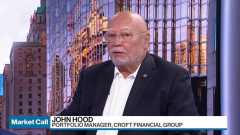Jun 16, 2024
Scholz Demands More Team Spirit as Budget Showdown Looms
, Bloomberg News

(Bloomberg) -- Chancellor Olaf Scholz called on his quarreling coalition partners to follow the German national soccer squad’s example and show more team spirit as a way to bridge differences over spending priorities and win back voters’ trust.
The leadership of Scholz’s Social Democratic Party — or SPD — called an emergency board meeting for Sunday to discuss consequences and lessons after the party fell to a record low in the European Parliament election on June 9.
Scholz is expected to join the SPD party board meeting before heading into the next round of coalition talks on the 2025 budget with Finance Minister Christian Lindner of the fiscally prudent Free Democrats and Economy Minister Robert Habeck of the pro-spending Greens.
As host of the Euro 2024 soccer championship, Germany’s national team beat Scotland 5-1 in the opening match of the tournament on Friday. The strong performance stood in stark contrast to Scholz’s ruling coalition, whose approval ratings dropped to record lows amid the constant bickering over climate protection measures and limits to social benefits.
“One has to support each other and one has to show team spirit,” Scholz told RTL television in an interview at the sidelines of the G-7 summit Saturday.
The center-left leader urged his coalition partners to stop their public disputes and try to present a more unified front to voters, pointing to the recent losses in the European Parliament election.
“All three parties have lost support. That’s why we cannot simply return to business as usual. That’s a very important point which I want to stress,” Scholz said.
“This is one of the entirely justified criticisms of many citizens, namely that there is too much debate,” Scholz said in another interview with ZDF television. “We need to pull ourselves together and stick together to reach agreements.”
Scholz himself is facing increasing pressure from his own party to show more assertive leadership within the coalition, starting with wrangling over the 2025 federal budget.
“To me it’s personally important that we don’t put our social cohesion in danger,” Scholz told RTL. He promised to preserve “our social welfare state, which we have developed so carefully in Germany and which ensures the security of all citizens.”
Senior SPD and Green members have called for a renewed emergency exemption from Germany’s constitutional limits on new borrowing or for the creation of another debt-financed special fund for defense spending. But Finance Minister Christian Lindner and his Free Democrats party have ruled out more borrowing that goes beyond the fiscal rules, which are known as the debt brake.
The spending stalemate has triggered speculation that Scholz might combine approval of the 2025 draft budget with a vote of confidence in parliament. Senior coalition officials have played down the likelihood of such a risky move, which in a worst-case scenario could lead to snap elections.
Unlike French President Emmanuel Macron, Scholz hasn’t shocked markets by seeking an early election. Germany’s next federal election is scheduled for September 2025.
With the European elections out of the way, the coalition parties appear headed for the next drubbing in September when voters in three eastern German regions elect state legislatures. Polls suggest the nationalist Alternative for Germany, or AfD, will win the most seats in all three states.
“We shouldn’t project too much of our own situation on France,” Scholz said in the RTL interview. “But we will have to look very closely on what will happen there.”
©2024 Bloomberg L.P.


